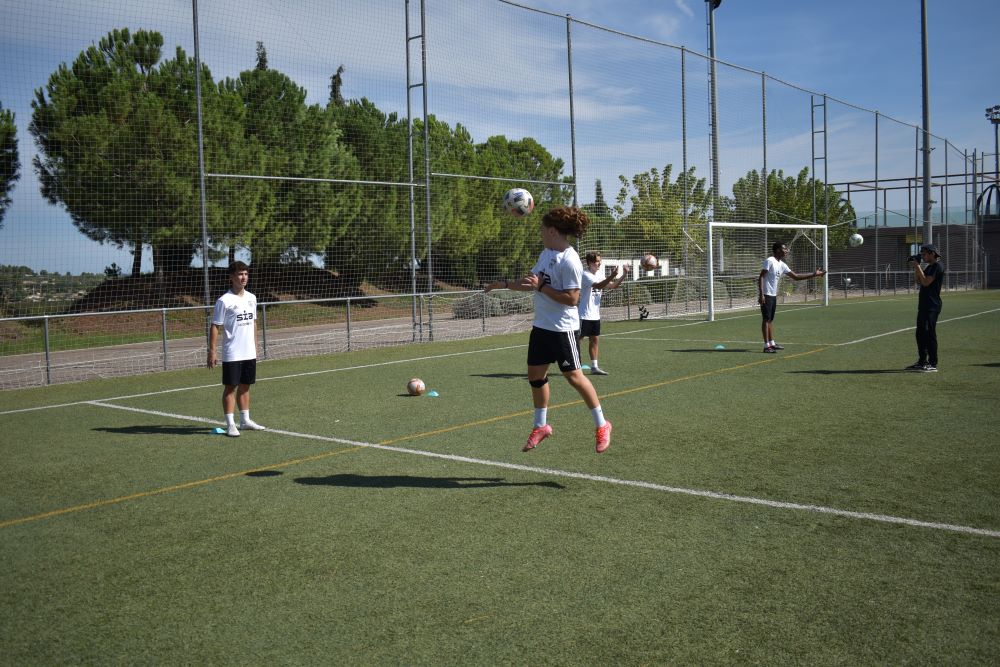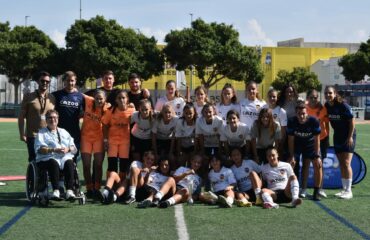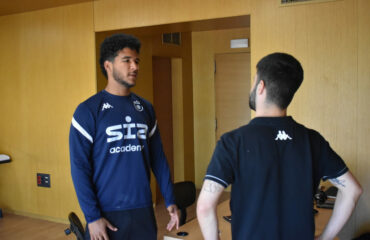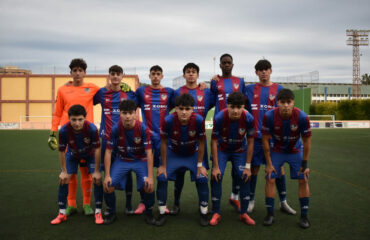How to optimise the individual training of the football player?
Football is a collective and open sport, in which specific and individual technical and tactical situations are developed, which are part of the individual and collective development of the football player. For this reason, the aim is to optimise the individual training of the football player through the acquisition and learning of new techniques.
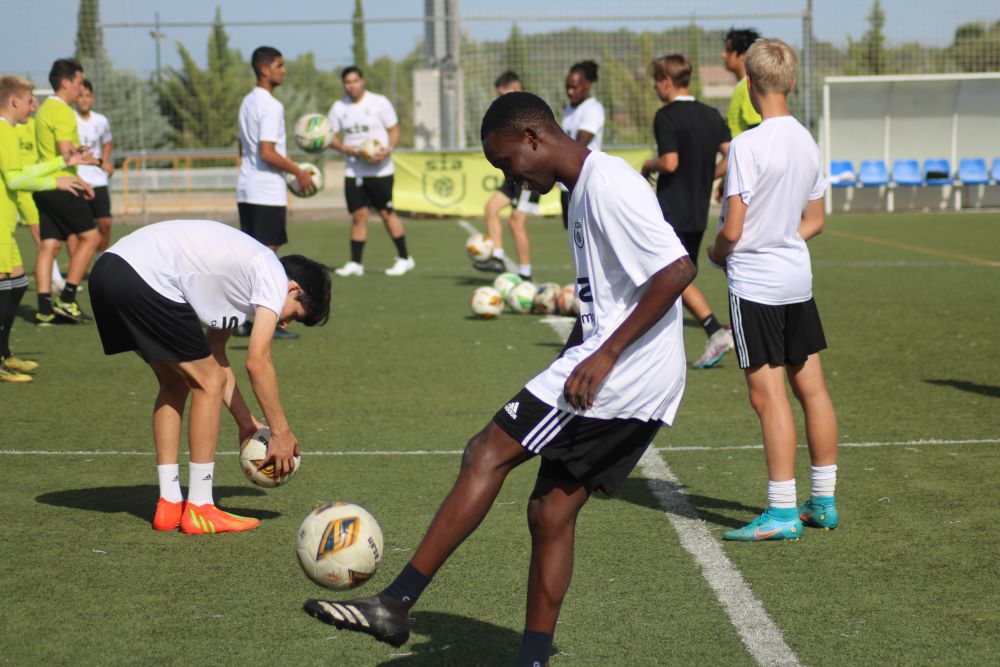
What role does technique play in football?
Technique is a fundamental principle of the game in football without which it is not possible to implement effective tactical actions, moments and game situations. This is why individual technical/tactical training in the training stages plays an essential role in the teaching-learning process of the player.
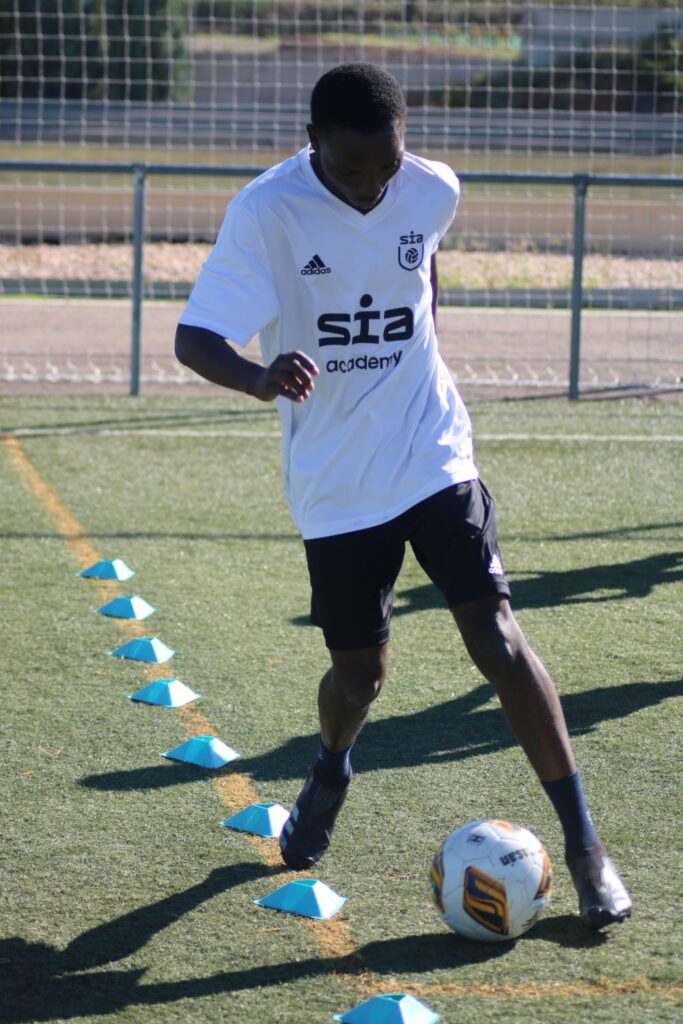
Development of new skills in young football players
We are at a sensitive stage for this learning process where we must develop these technical/tactical skills while also respecting the age, characteristics, evolutionary process and psychomotor development of the football player within each training session.
In addition, a suitable methodology must be proposed to guarantee the integral development with a teaching-learning process adjusted to the training stage and providing all the knowledge, tools and instruments for an efficient and effective progress of the player.
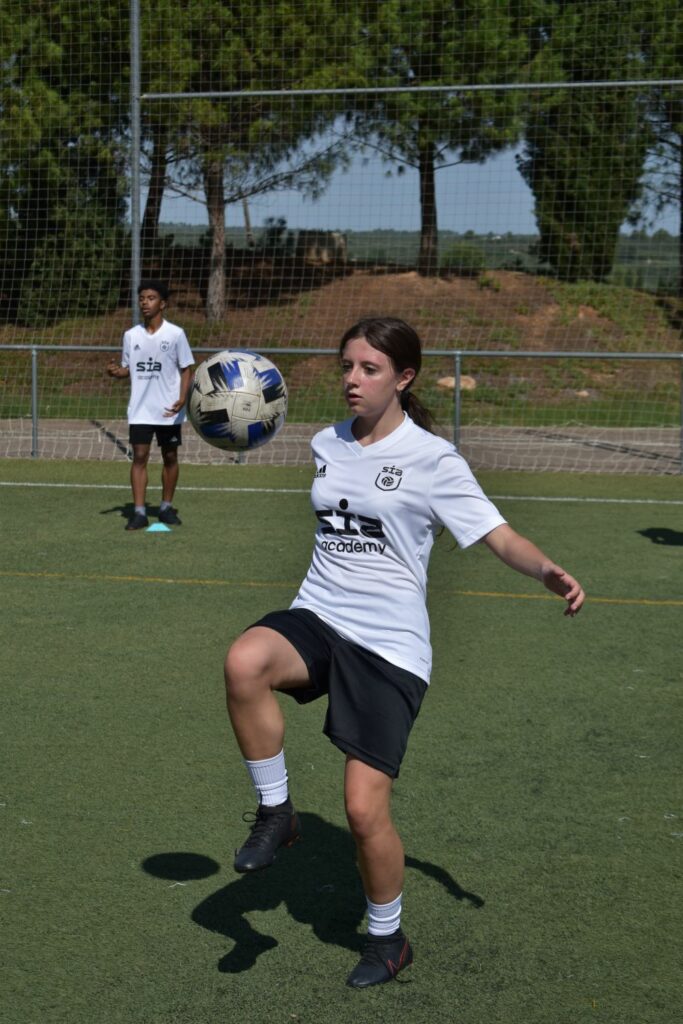
With proper teaching, learning can be differentiated from other clubs and football players. This methodology is applied in the individualised training optimisation programme within an optimal teaching method and guaranteeing each of the learning objectives for the coherent and efficient development as football players.
Football as a tool for the education of young people
The practice of sport, in this case football, should be a tool and activity that collaborates in the training of young people, since at an early age, a correct and coherent teaching-learning process should be applied to football players, thus improving their competencies, skills and qualities within their possibilities.
In the different stages (training, development and improvement stages) we must understand that we train to learn the concepts, contents and principles of football; thus collaborating with the integral training process of the player, to train integrally through football is the objective in the first stages. In this way, we attend to a continuous and permanent training process during the different ages and categories.
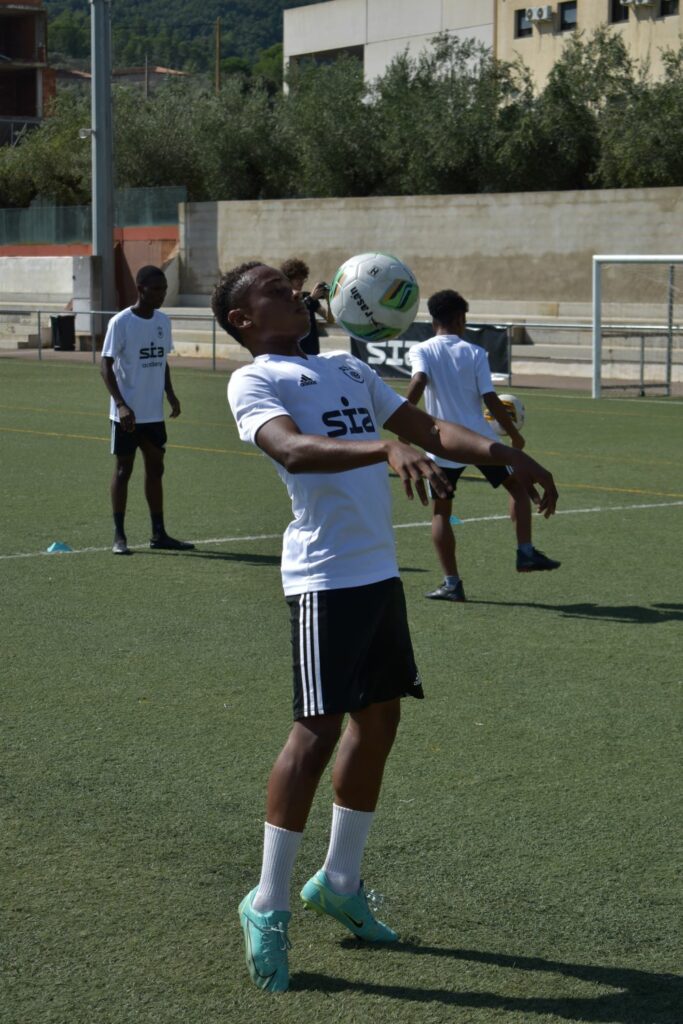
In this way, we have the responsibility and duty to know, understand and comprehend the football player in each of his facets, in this way, an efficient and effective result can be obtained in the acquisition of knowledge and in its application or implementation in the different moments and ages that correspond.
Individual player optimisation training
Through individual player optimisation training, the aim is to contribute through an impact of improvement, allowing players to progress through different strategies, achieving positive results and improvement. At a technical, tactical, psychological and emotional level to enhance each of them as these components must go hand in hand.
It is for all these reasons that a correct preparation of the player will be the basis for his future and his development as a footballer and progress in the different stages or categories in which he develops.
Therefore, the aim is to address methodological aspects that are considered transcendental for the players and that respond to their integral development, maximising their competitive and formative behaviour in accordance with the age and evolutionary development of the footballers through an integrated vision of sporting performance.
What does technique in football require?
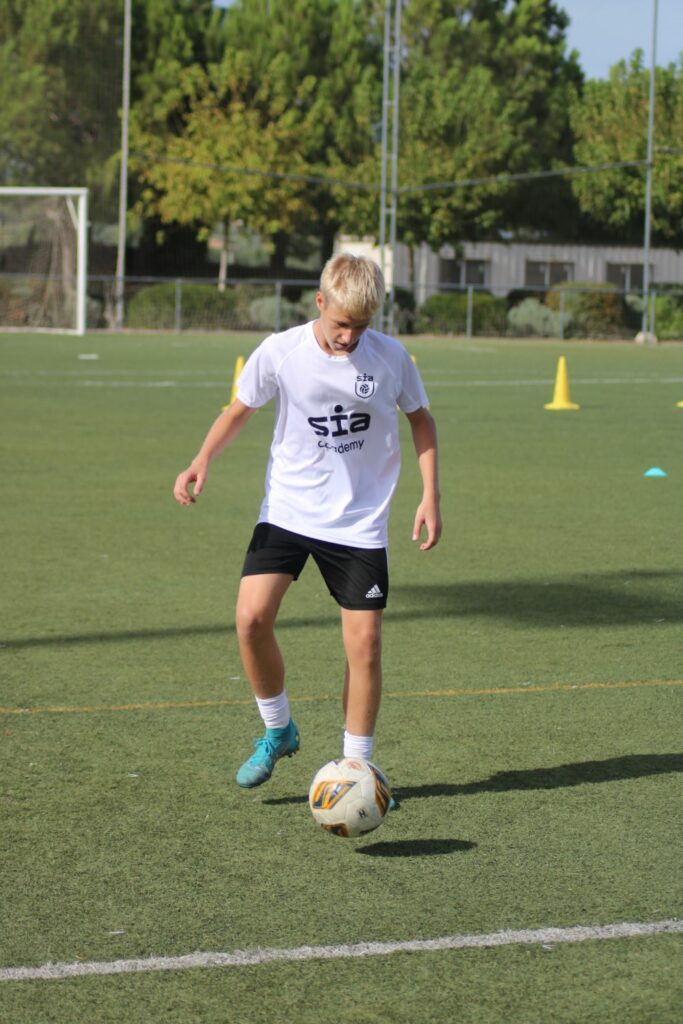
Technique in football requires a large number of repetitions in actions and executions, so that players have the ability to dribble quickly, make optimal passes, shoot accurately and head the ball effectively.
In this way, technique needs a variety of conditions, time and space for players to acquire these motor skills and apply them in the match. Tactics is a tool to realise the idea of planning, a plan to achieve the goals pursued.
Tactics are influenced by the strengths and weaknesses of one’s own team and the opposing team, by weather conditions and pitch factors.
Understanding the game in football
In current methodologies we hear that the understanding of the game (tactics) must be the determining factor in the teaching of the players. But if you do not know how to execute (technique) correctly or effectively that situation, the condition of the game cannot be decisive and will not have game effects. These two concepts must and have to go hand in hand.
Being a good player and understanding the game is the sum of two essential factors to understand how, when, why and where to use each concept within the game context.
It will be very important to put into practice individual technical-tactical training work that will be of great help to the player to optimise all his skills and qualities, both motor and cognitive, in order to develop a coherent and appropriate progress in accordance with his individual characteristics.
The role of the trainer/coach
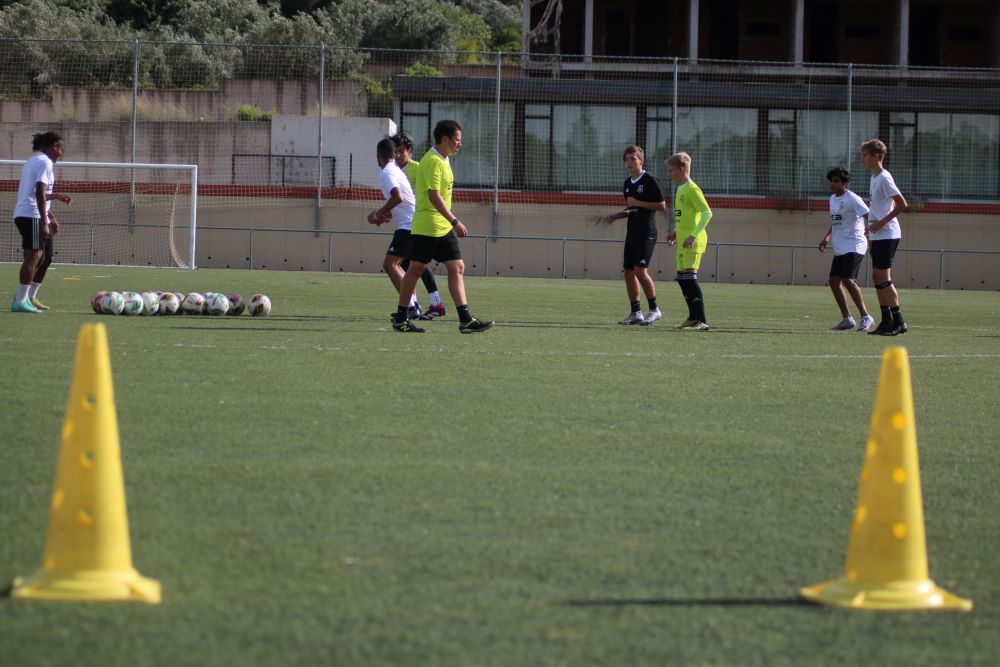
Understanding the game should lead the player to consider “why” (tactics) to do something, but also to know “how” (technique) to do it.
The role of the trainer/coach is to design learning experiences that encourage players to discover principles and concepts for themselves, so that these concepts can then be transferred to other situations where they can be applied, as well as teaching the different technical concepts so that they have good problem solving and an effective outcome in the moment or game situation in which they find themselves.



